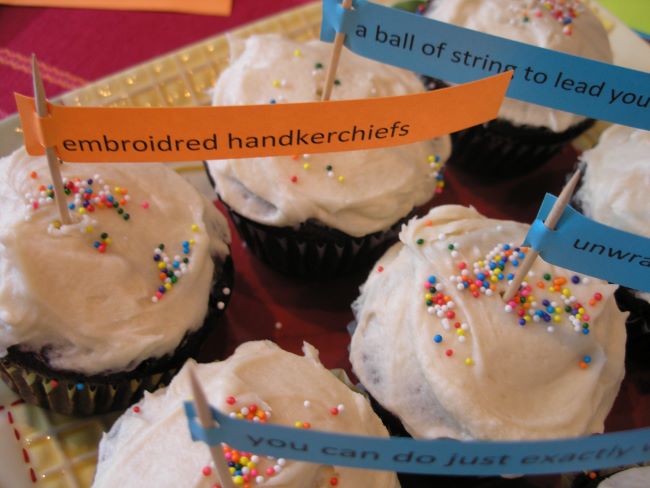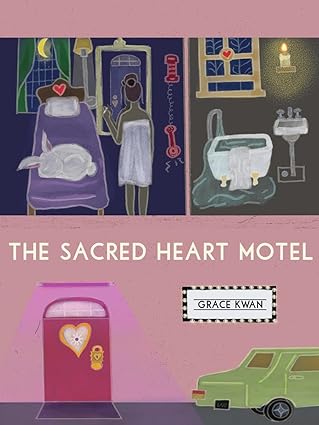
Let’s Make Some Poems!
As we approach World Poetry Day on March 21st and Poetry Month in April, I have a few writing circles coming up with a focus on reading and writing poems. Maybe you’d like to join me on Zoom or in person in Nanaimo? (You’ll find info below about a one-day writing circle on March 21 in Nanaimo and half day women’s writing circles on March 6 on Zoom and April 2 in Nanaimo.)
I decided to go with “make” in the title of two of the writing circles as the word “poem” in English, going back to the sixteenth century, means “to designate a form of fabrication, a type of composition, a made thing.” Thank you to Edward Hirsch who wrote How to Read a Poem (And Fall in Love with Poetry). I like the notion of a poem being a “made thing.”
If you love poetry and would like to write your own, I’d be pleased if you could join me, and others, to make poems together. You may want to consider your poem making to be an exploration in beauty and form. We won’t be looking at poems to see what they “mean.” We’ll see what poems (by several poets) have to tell us, to let the language show us what’s possible, and to follow nudges for our own poem making which will appear, as if by magic, on the page.
If you’re nervous about poetry, these poem making opportunities are for you as well. A word or a prompt will help you get started and that simple beginning can turn into finding your voice. Experimenting and playing with form can open you to new ideas. Or, there can be no form at all! Let the words tumble onto the page, creating a form of their own as penned by you.
The upcoming writing circles are for those who write in journals, make notes on the corners of paper serviettes, love to read, appreciate being in a community of other writers.
Francis Weller, writer and soul activist, who describes the times we are in now as “the long dark,” says we need three medicines. The first medicine we require for these times is friendship and community. In a writing circle, we create connections to and with one another and become a community in which we are seen and heard.
The second medicine we need for the long dark is imagination
The third medicine we need for the long dark is to remember our deep time ancestral inheritance.
The writing circles offer these medicines, as suggested by Francis Weller, as well as poetry itself. Our ancestral inheritance could be the elders we are related to as well as those who have inspired us for years such as the writers and poets who bring us much wisdom and inspiration.
What is a writing circle like?
Several years ago, a woman called Ine in a writing circle in Guelph, Ontario said: “Mary Ann opens up unknown territories in our soul. Then, in her gentle way, tells us that we’re special and creative.” It’s still true. Perhaps those “unknown territories” were known in the past and haven’t been visited in awhile.
In a writing circle, we follow writing invitations which could be in the form of a question or a particular poem to inspire our own words. Sharing isn’t mandatory. The responses we give to someone reading aloud are to echo back something that resonated with us. Comments are meant to encourage rather than critique. All the writing is meant to have you be in touch with what matters to you. Along the way, there can be new discoveries, fresh insight, or simply an acknowledgement of the way things are.
The very act of making offers something new in the world. A “newness gets added to the universe in the process of the piece itself becoming” as Jan Phillips says in “The Artist’s Creed.”
Who am I?
In case you haven’t worked with me before, I’m Mary Ann Moore, a poet, writer and writing mentor who has been leading writing circles since 1997. I’ve also been writing for a long time: poetry, personal essays, writing guides, book reviews, a blog. My new chapbook of poetry, Modern Words for Beauty, will be published in April 2025.
Here are the dates and descriptions of the upcoming writing circles:
Writing for the Love of It, a one-day writing circle
open to everyone
at Bethlehem Centre, Nanaimo
on Friday, March 21, 2025 (World Poetry Day), 9 a.m. to 4 p.m.
“Writing for the Love of It” is an invitation to embody and create writing as your own spiritual practice. Together, we’ll create a sacred ceremony of writing, sharing and listening to yourself and others. On World Poetry Day, March 21st, you will be encouraged and enlightened by the gifts of poetry as solace, refuge and as a way to express grief, joy and all that is between. “Poetry gives us a way to inhabit our lives,” poet Marie Howe says. You will discover a variety of ways to share your own way of looking at things and embrace the fullness of the stories from your life. It has been said of Mary Ann Moore’s writing circles that they are places where unsuspecting poets are born.
You can register here: https://bethlehemcentre.com/program/3046/writing-for-the-love-of-it/
Let’s Make Some Poems!
a women’s writing circle on Zoom wherever you are
on Thursday, March 6, 2025, 10: 30 a.m. to 1 p.m. Pacific time
Fee: $60 payable via e-transfer to creativity@maryannmoore.ca
or by cheque sent to Mary Ann Moore at 76 Colwell Road, Nanaimo, B.C. V9X 1E4
Poetry offers a doorway in and a welcome home. Let’s do some reading, listening, reflecting and the making of some poems together. Don’t worry if you’ve never written a poem: “This isn’t / a contest but the doorway / into thanks, a silence in which / another voice may speak.” (from “Prayer” by Mary Oliver.) That voice may be spirit or your own voice, neglected until now.
Please email me to let me know of your interest or if you have any questions.
Let’s Make Some Poems!
a women’s writing circle at Mary Ann’s home in Nanaimo
on Wednesday, April 2, 2025, 1 to 3:30 p.m.
Fee: $60 payable via e-transfer to creativity@maryannmoore.ca
or by cheque sent to Mary Ann Moore at 76 Colwell Road, Nanaimo, B.C. V9X 1E4
Poetry offers a doorway in and a welcome home. Let’s do some reading, listening, reflecting and the making of some poems together. Don’t worry if you’ve never written a poem: “This isn’t / a contest but the doorway / into thanks, a silence in which / another voice may speak.” (from “Prayer” by Mary Oliver.) That voice may be spirit or your own voice, neglected until now.
Please email me to let me know of your interest or if you have any questions.

